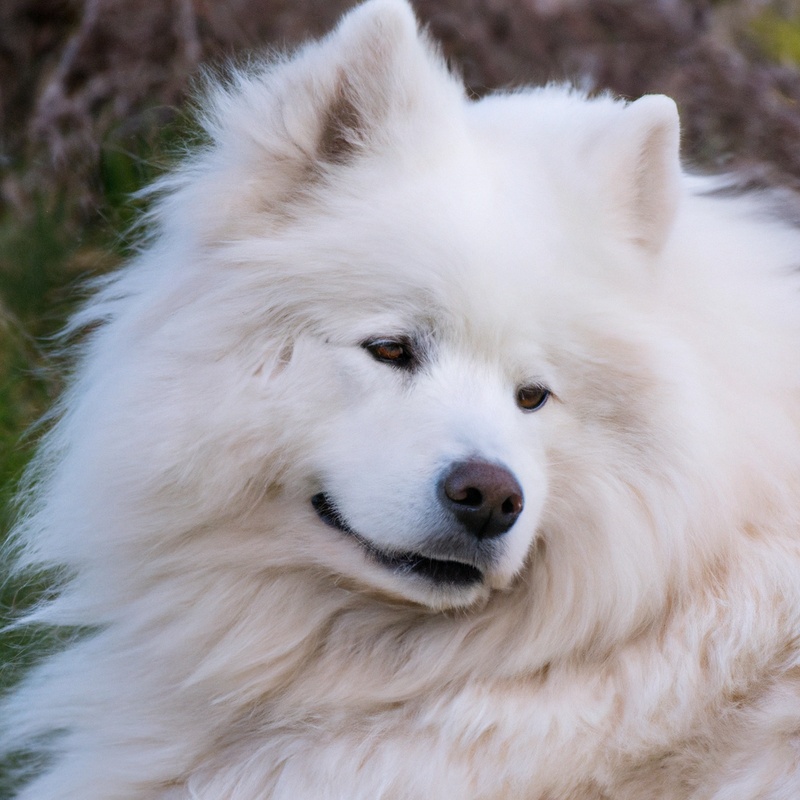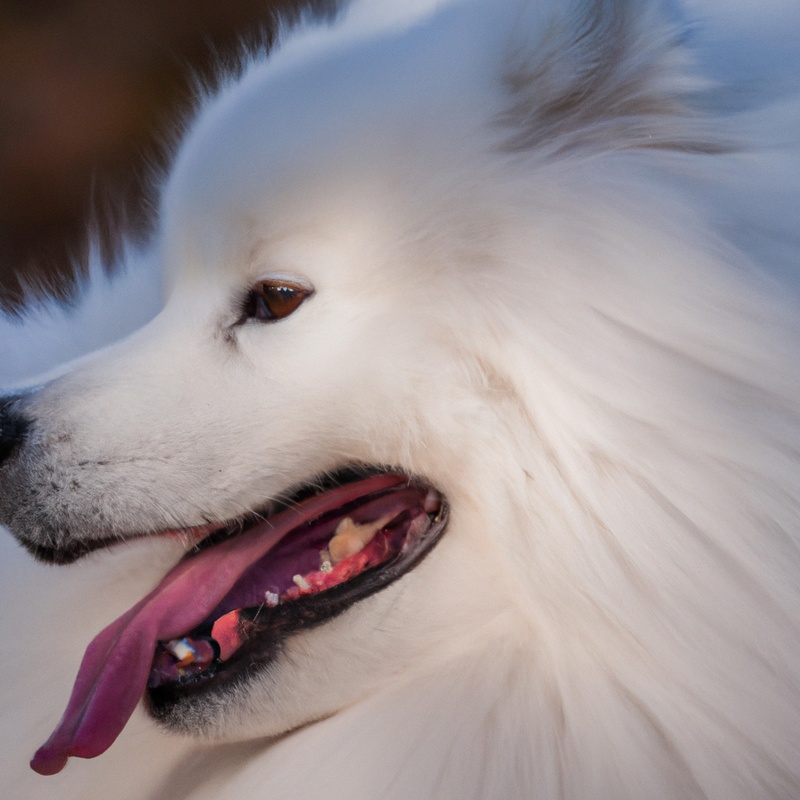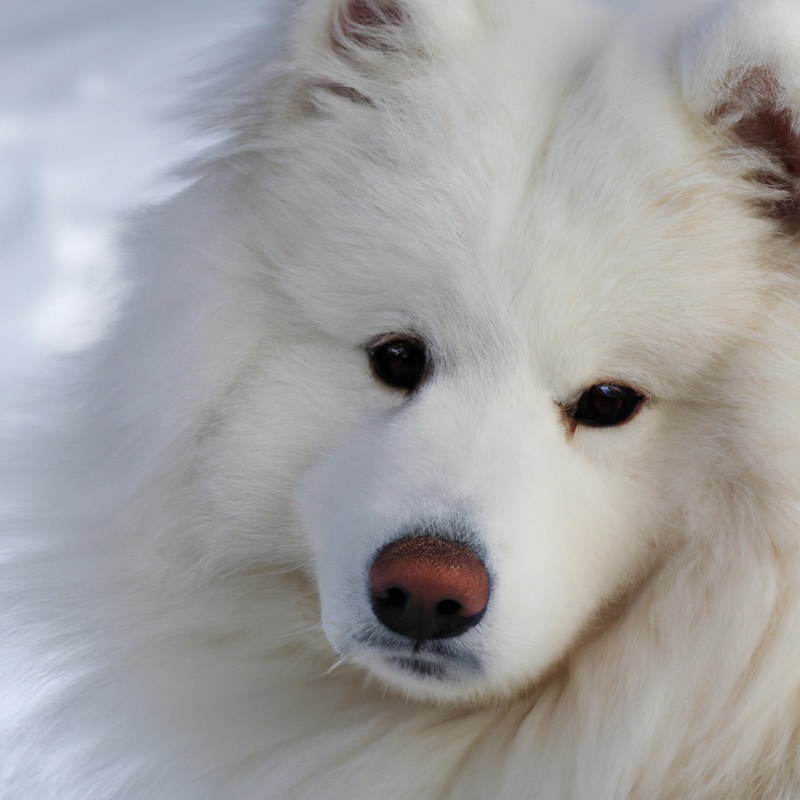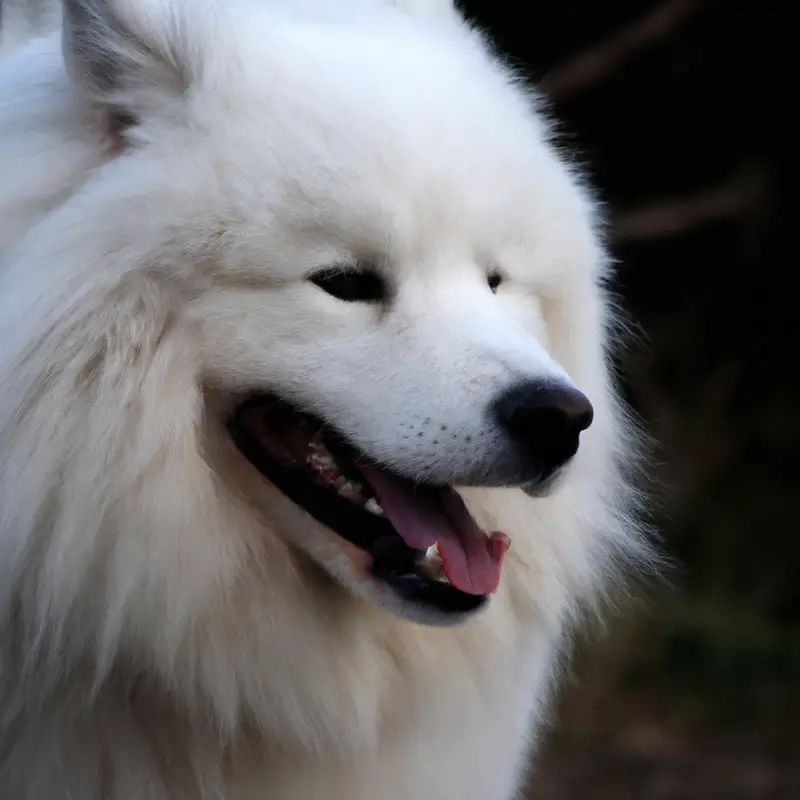What Is The Temperament Of a Typical Samoyed?
Key Takeaways:
- Samoyeds are known for their friendly and gentle nature.
- They are highly sociable dogs and get along well with children and other pets.
- Samoyeds require regular exercise and mental stimulation to prevent boredom.
- They can be independent and stubborn at times, so consistent training is important.
Have you ever wondered what it’s like to have a fluffy, friendly, and affectionate companion by your side? Well, look no further than the Samoyed! These delightful dogs are known for their incredible temperament and loving nature.
But what exactly makes a typical Samoyed tick?
In this article, I will delve into the fascinating world of Samoyed temperaments. I’ll explore their friendliness, socialization needs, love for family and other pets, potential as guard dogs, training challenges, exercise requirements, and common temperament issues.
So, if you’re curious about Samoyeds and what to expect when bringing one into your home, keep reading!
| Temperament of a typical Samoyed |
| Characteristics |
| Friendly |
| Gentle |
| Adaptable |
| Loyal |
| Sociable |
| Intelligent |
| Energetic |
| Potential Challenges |
| Stubbornness |
| Mischievousness |
| High exercise needs |
| Moderate grooming requirements |
| Slight tendency to bark |
Understanding the Temperament of Samoyed Dogs
The Friendliness and Affectionate Nature of Samoyeds
Samoyeds are known for their friendly and affectionate nature.
They are naturally social dogs who love to be around people and other animals.
Samoyeds are often referred to as “smiling dogs” because of their happy and cheerful disposition.
They enjoy being part of the family and are great with children.
Their friendly nature makes them great companions and therapy dogs.
Samoyeds are also very affectionate and love to cuddle.
They have a strong bond with their owners and thrive on affection and attention.
Socializing a Samoyed: Importance and Tips
Socializing a Samoyed is vital for their overall well-being and behavior.
It helps them become friendly, confident, and adaptable dogs.
Introduce them to various people, animals, and environments from an early age.
Take them to different places, such as parks or dog-friendly events, to expose them to new experiences.
Encourage positive interactions with strangers and reward good behavior.
Gradually increase their exposure to different situations to build their social skills and reduce anxiety.
Consistent socialization will help your Samoyed become a well-rounded and happy companion.

Independence vs. Need for Human Attention in Samoyeds
Samoyeds have a unique temperament that balances independence and a strong need for human attention. They are known for being friendly and social, and they enjoy being part of the family.
While they can be independent at times, they also thrive on human companionship and can become lonely if left alone for long periods.
It’s important to give them both space and attention to keep them happy and mentally stimulated. Regular exercise, playtime, and socialization are key to meeting their needs.

Samoyeds and Family: Their Love for Children and Other Pets
Samoyeds are known for their love and affection towards children and other pets. They have a gentle and friendly nature, making them excellent companions for families.
These dogs are patient and tolerant, making them great with kids who can sometimes be a bit too enthusiastic.
Samoyeds also get along well with other pets such as cats, thanks to their sociable nature. They thrive on human companionship and will do their best to be an integral part of your family.

Samoyeds as Guard Dogs: Are They Protective?
Samoyeds are naturally protective of their families and make excellent guard dogs.
They are known for their alertness and will often bark to alert their owners of any potential danger.
Their protective nature, coupled with their size and strength, can act as a deterrent to intruders.
However, it’s important to note that while Samoyeds can be protective, they are generally friendly and gentle in nature, making them more suitable as family pets rather than aggressive guard dogs.
Samoyeds and Training: Challenges and Techniques
Training Samoyeds can present some challenges due to their independent and sometimes stubborn nature. However, with the right techniques, it is possible to successfully train these dogs.
Here are some key points to keep in mind:
- Positive reinforcement: Using rewards and treats can motivate and encourage your Samoyed to participate in training sessions.
- Consistency: Stick to a consistent training routine to establish boundaries and reinforce desired behaviors.
- Patience: Samoyeds may take longer to learn certain commands, so be patient and avoid getting frustrated.
- Socialization: Expose your Samoyed to various environments, people, and animals from an early age to ensure they grow up to be well-rounded and friendly dogs.
- Mental stimulation: Provide plenty of mental stimulation to keep your Samoyed engaged and prevent boredom, which can lead to destructive behaviors.
Remember that every dog is unique, so tailor your training approach to your Samoyed’s individual needs and temperament. Enjoy the process and have fun bonding with your furry friend!
Samoyeds and Exercise: Their Energetic Nature
Samoyeds are known for their energetic nature, so exercise is crucial for their well-being.
Here are some key points about Samoyeds and exercise:
- High energy levels: Samoyeds are an active breed and require regular exercise to keep them physically and mentally stimulated.
- Daily exercise: Aim for at least 30-60 minutes of moderate to intense exercise to meet their needs. This can include walks, jogs, playtime, or activities like agility training.
- Mental stimulation: In addition to physical exercise, incorporating mental stimulation activities like puzzle toys or obedience training can help keep your Samoyed engaged and prevent boredom.
- Outdoor activities: Samoyeds enjoy outdoor adventures like hiking, swimming, or playing fetch, so consider incorporating these activities into their exercise routine.
- Monitoring in hot weather: Be mindful of exercising your Samoyed in extreme heat, as they are prone to overheating. Opt for early morning or late evening walks and provide plenty of water breaks.
Remember, a well-exercised Samoyed is a happy and healthy one, so make sure to provide them with the activity they require to thrive.
Common Temperament Issues in Samoyeds and How to Deal with Them
Samoyeds are generally friendly and gentle dogs, but like any breed, they can have temperament issues.
One common issue is separation anxiety, where they become anxious or distressed when left alone.
To deal with this, you can gradually increase their alone time, provide them with engaging toys and treats, and create a calm and secure environment.
Another issue is stubbornness, which can be managed by using positive reinforcement training techniques and being consistent in your expectations.
Lastly, excessive barking can be addressed by identifying the triggers and providing alternate outlets for their energy.
Frequently Asked Questions (FAQs)
FAQs:
1. Q: Are Samoyeds good with children?
A: Yes, Samoyeds are known for their friendly and gentle nature, making them great companions for children.
2. Q: Are Samoyeds easy to train?
A: While Samoyeds are intelligent and eager to please, they can be stubborn at times. Consistent positive reinforcement training is key.
3. Q: Do Samoyeds require a lot of exercise?
A: Yes, Samoyeds are an active breed and need regular exercise to stay happy and healthy. Daily walks and playtime are recommended.
4. Q: Are Samoyeds good watchdogs?
A: Although Samoyeds are friendly and may not be highly protective, they have a tendency to bark and alert their owners to any potential threats.
5. Q: Do Samoyeds shed a lot?
A: Yes, Samoyeds have a thick double coat that sheds heavily twice a year. Regular grooming and brushing are necessary to manage the shedding.
6. Q: Can Samoyeds live in hot climates?
A: Samoyeds have a thick coat designed to keep them warm in cold environments. They may struggle in hot climates and require proper cooling and shade.
7. Q: Are Samoyeds prone to any health issues?
A: While generally healthy, Samoyeds can be prone to certain genetic health conditions such as hip dysplasia and progressive retinal atrophy.
8. Q: How much should I feed a Samoyed?
A: The amount of food depends on the dog’s age, weight, and activity level. Consult a veterinarian for a diet plan tailored to your Samoyed’s needs.
9. Q: Do Samoyeds get along well with other pets?
A: With proper socialization, Samoyeds can get along with other pets. However, supervision and gradual introductions are recommended.
10. Q: How long do Samoyeds usually live?
A: On average, Samoyeds have a lifespan of 12 to 14 years. Proper care, nutrition, and regular veterinary check-ups can contribute to their longevity.
What is the average temperament of a Samoyed?
The average temperament of a Samoyed is friendly, gentle, and sociable. They are known for their affectionate nature, and they thrive on human companionship.
Samoyeds are usually good with children and other pets, making them excellent family dogs.
They are intelligent and eager to please, which makes training them relatively easy. However, they can have a stubborn streak, so consistent and patient training is necessary.
Samoyeds are generally alert and make good watchdogs, but they are not typically aggressive or overly territorial.
Overall, they are happy, outgoing dogs that enjoy being part of a loving family.
Are Samoyeds good with children?
Samoyeds are generally good with children. They have a friendly and gentle nature, making them great companions for kids.
Samoyeds are known for their patience and tolerance, which allows them to handle the energetic and sometimes unpredictable behavior of children.
However, it’s important to note that individual temperaments may vary, so it’s always recommended to supervise interactions between dogs and children to ensure safety for both parties. Remember, proper socialization and training are key to fostering a positive relationship between Samoyeds and children.
Do Samoyeds get along with other pets?
Samoyeds have a friendly and sociable temperament, which often makes them good companions for other pets. Their natural inclination is to be amiable and playful, especially with other dogs.
However, it’s important to introduce them properly and supervise initial interactions.
Early socialization and training are key to ensuring a positive dynamic. While they generally get along well with other pets, it’s always important to assess individual personalities, provide proper introductions, and monitor their interactions to maintain harmony.
How should I socialize my Samoyed?
To socialize your Samoyed, start by exposing them to a variety of people, animals, and environments from a young age.
Take them to different places like parks, pet-friendly stores, and obedience classes.
Encourage positive interactions with children, adults, and other dogs.
Use treats, praise, and rewards to reinforce good behavior.
Gradually increase the duration and intensity of socialization experiences.
Regularly exposing your Samoyed to new situations will help them develop into a well-rounded, socialized dog.
Can Samoyeds be guard dogs?
Samoyeds can be protective of their families and will alert you to any strangers approaching. However, they are not typically considered to be natural guard dogs.
They are friendly and gentle by nature and are more likely to greet a stranger with a wagging tail rather than aggression.
That being said, their size and strength can still make them a deterrent to potential intruders. If you want a dog specifically for guarding, there are better breeds suited for that role.
Do Samoyeds require special training techniques?
Samoyeds are intelligent and eager to please, but they do have their own unique temperament.
In terms of training, they typically require consistent and positive reinforcement techniques.
This breed thrives on praise, treats, and rewards.
Patience and understanding are key when working with these dogs.
Socialization is also important for Samoyeds, as they can be prone to separation anxiety if not properly exposed to different people and environments.
Overall, while they don’t necessarily require special training techniques, they do benefit from a kind and patient approach.
What are some common temperament issues in Samoyeds?
Samoyeds are generally friendly and gentle dogs, but they can sometimes exhibit certain temperament issues.
Some common issues include stubbornness, independence, and a tendency to bark excessively.
These dogs can also become anxious or suffer from separation anxiety if not properly trained and socialized.
Additionally, Samoyeds are known to be prone to digging, which can be a behavioral issue that needs to be addressed.
Proper training, socialization, and consistent exercise can help prevent or manage these temperament issues in Samoyeds.
How much exercise do Samoyeds need?
Samoyeds are energetic dogs that require a moderate amount of exercise.
They typically need around 30-60 minutes of physical activity per day.
This can include walks, runs, or playtime in a secure, fenced area.
Mental stimulation is also important for Samoyeds, so puzzle toys and training sessions can help keep them engaged.
Regular exercise not only keeps them physically fit but also helps prevent behavioral issues that may arise from pent-up energy.
Providing a balanced exercise routine will keep your Samoyed happy and healthy.
Final Verdict
The temperament of a typical Samoyed is friendly, affectionate, and sociable.
They thrive on human companionship and love being around people, especially children.
However, they do have a degree of independence, which means they may not be excessively clingy.
Proper socialization is crucial for Samoyeds to ensure they are well-adjusted and friendly towards other animals and strangers.
Although they are not known for being aggressive, they do possess a protective instinct and can make great watchdogs.
Training can be a challenge due to their stubbornness, but with positive reinforcement and consistency, they can learn quickly.
Regular exercise is necessary to channel their energy and prevent behavioral issues.
Overall, Samoyeds make wonderful family pets with their loving and playful nature.







